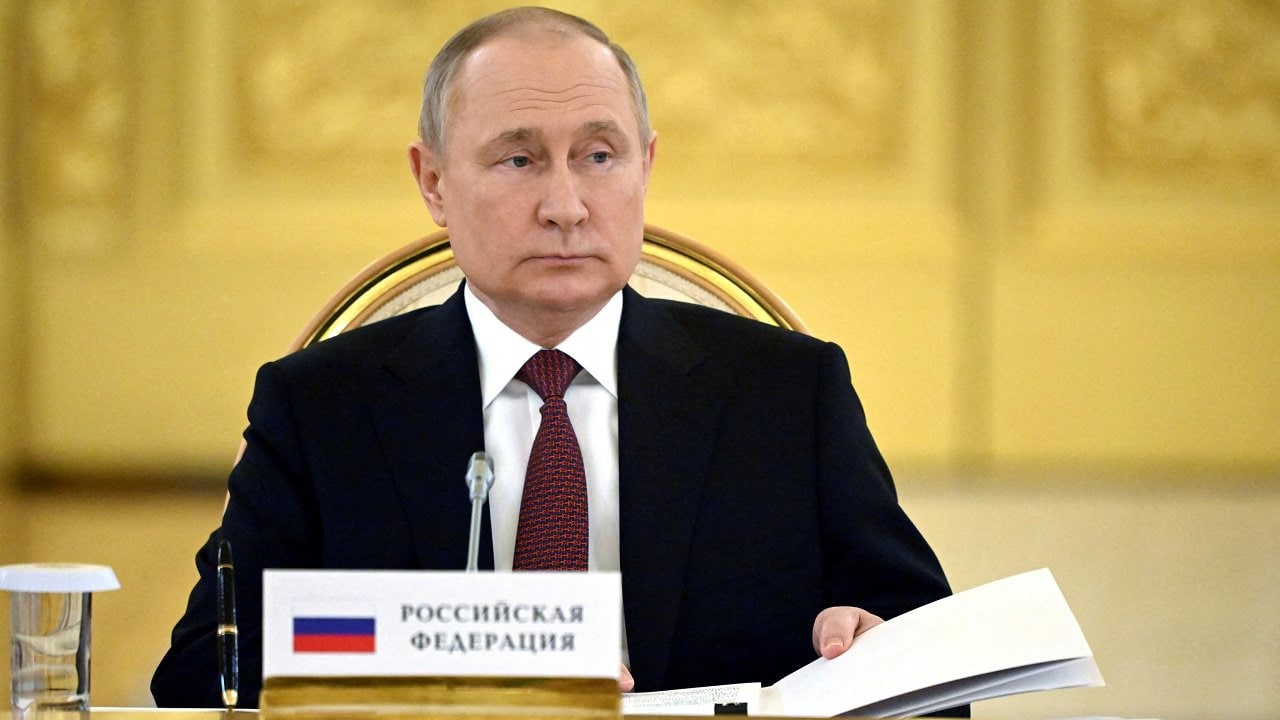Could Putin Be Sick with Some Sort of Disease? History Explains Why the Rumors Never Fade – There is an old joke from the Soviet era about a man who stops at the local news kiosk every morning to purchase a copy of the USSR Communist Party newspaper, Pravda. His following action is always the same. He looks at the paper’s front page, gets a frustrated look on his face, and then angrily exclaims, “Once again, it has not happened yet.” He then pitches the paper into the local rubbish bin and stomps off.
Puzzled by this behavior that goes on for months and months and stretches into years, the ordinarily disinterested kiosk owner finally asks the man, “You look at the front page every day, you never read any of the rest of the paper, you just pitch it into the bin and go away angry. What are you looking for on the front page of Pravda?”
“I am looking for an obituary,” he answers.
“Obituaries are not carried on the front page of Pravda,” replies the kiosk owner.
“The one I keep looking for will be!!!” the man exclaims.
The story is, of course, meant to show how many of the people in Russia who are dismayed and distraught over their leaders’ shortcomings will pray for their death. Since Soviet leaders were never elected and Russia has not had a free election for its president since 1996, it is only death that can bring a new regime into power.
Putin’s Russia
Sadly, for those hoping a leadership change will bring about a renaissance to the governance of their country, the new leader almost never produces the desired results.
Mikhail Gorbachev’s programs of openness (glasnost) about the many closed subjects of the Soviet years and calls for restructuring the political system (perestroika) were promised to invigorate a stagnating Soviet system. However, his initiatives brought about an economic downturn rather than prosperity.
Boris Yeltsin crashed the Soviet system and became the first president of a new Russia. But he ends up being chastised as being too corrupt, infirmed at times, and unwilling to make hard decisions.
The current Russian President, Vladimir Putin, was supposed to correct these deficiencies. But he ends up as a president-for-life whose regime is so corrupt as to make Yeltsin look like a humanitarian relief worker. He returns the political system to a level of repression that rivals that under Josef Stalin.
The Eternal Hope of The Leader is Dying
Historically, official announcements of the death of a Soviet leader only came after several key indicators that something tragic had taken place, one of which was for regular television programming to be pre-empted by a televised performance of the ballet Swan Lake.
Under Putin, the image of the row of ballerinas in one of the famous sections of that performance has been used more than once as a graffiti-like thought bubble on the part of those—who, like the man who bought Pravda every day—are hoping for his demise.
Consequently, theories about the Russian leader having severe health problems have become a cottage industry. Over the past 15 years or more, I have heard more people claiming to have inside knowledge tell me—at one time or another—that Putin has every kind of cancer known to medical science. A posting started another report that a heart attack had felled him spread like wildfire on an unreliable Telegram channel.
Other reports insist that he has had cancer, has been receiving chemotherapy, and may (or may not) recover. In November 2024, speculation that Putin had Parkinson’s or another severe nervous disorder spiked when he made public appearances in which he appeared to have no control over his twitching legs. In other moments of his coverage on television, his hands seem to shake continuously.
The final question to be answered, as one article published less than three months after the invasion of Ukraine asked, “Is Putin sick, or are we just meant to think he is.” The anxiety and the uncertainty created when these rumors about the former KGB Lt. Col. being on death’s doorstep appear now to be harnessed to strengthen his repressive grip on the country rather than the opposite.

Russian President Putin addressing the nation.
The same article relays a secretly recorded conversation by a Russian oligarch that encapsulates how so many are weary of the Putin dictatorship.
“He absolutely ruined Russia’s economy, Ukraine’s economy and many other economies— ruined [them] absolutely,” the oligarch said of Putin. “The problem is with his head … One crazy guy can turn the world upside down.”
They all know that when the crazy guy passes, it will be on the front page of all the papers. But like the man who goes to the kiosk, they just wish for nature to take its course. They all see the problem, but no one can—or wants—to take any action. In the meantime, they wait for the next rumor or the next unscheduled televised concert of somber, classical music.
About the Author: Reuben F. Johnson
Reuben F. Johnson is a survivor of the February 2022 Russian invasion of Ukraine and is now an Expert on Foreign Military Affairs with the Fundacja im. Kazimierza Pułaskiego in Warsaw. He has been a consultant to the Pentagon, several NATO governments and the Australian government in the fields of defense technology and weapon systems design. Over the past 30 years he has resided in and reported from Russia, Ukraine, Poland, Brazil, the People’s Republic of China and Australia.

